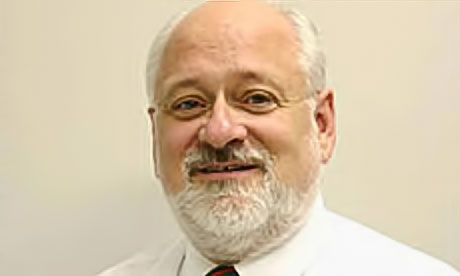Ultra-traditionalists aren’t the only ones in need of papal ‘solicitude’.
On June 26, the Vatican announced the appointment of Archbishop J. Augustine Di Noia to a specially created post as “a sign of the Holy Father’s pastoral solicitude for traditionalist Catholics in communion with the Holy See and his strong desire for the reconciliation of those traditionalist communities not in union with the See of Peter.”
That same day, a letter was leaked showing that the leader of those communities, Bishop Bernard Fellay, had already rejected the latest overtures from Pope Benedict 13 days before the Vatican announcement of the Di Noia appointment.
Obsessively pressing one’s attentions on a person who does not want them is called stalking. In many places and cases, it is a criminal offense.
Archbishop Di Nioa’s appointment even after the latest rejection of the pope’s repeatedly rejected and repeatedly renewed approaches to the Society of St. Pius X (SSPX) certainly looks like stalking of the SSPX by the Vatican.
By now it should be clear that despite concessions on the liturgy, offers to play down aspects of Vatican II and repeated attempts at wooing in spite of being spurned, the SSPX and the ultra-traditionalists they represent are just not interested in a relationship with the Vatican and will not be until Rome comes to them in abject and total surrender.
What is the power behind the SSPX’s ability to bring Rome to its knees, begging to be seen worthy to have the sect return to the fold? Whatever that power, there must be glee in the SSPX ranks in knowing they have it.
In the meantime, Rome has given little glee to non-traditionalist Catholics who have remained faithful members of the Church through the past decades. Though Pope Benedict’s personal inclinations are clearly traditionalist, he must know that the majority of Catholics are not traditionalists in his sense and never will be. But they remain in communion with him.
In one sense, those who have remained faithful during a half-century of ups and downs are certainly traditionalist in maintaining their loyalty to the Church in spite of being disappointed, embarrassed and even vilified for their loyalty. It would be easy for them to just leave, a move that more rabid traditionalists actually and vehemently encourage, but they have not. And though increasing numbers are departing, the majority seems likely to continue their allegiance.
That majority has endured the pain of seeing bishops inflict abusive priests upon their communities, the embarrassment of the corruption and confusion at the Vatican disclosed by Vatileaks and the frustration of having liturgical translations imposed upon them that they neither want nor accept. They have watched as Rome “bent over backwards” to appease schismatic rebels while ignoring the opinions and hopes of the faithful.
So, where is the pope’s “pastoral solicitude” for them? Perhaps it is time to provide a bit more solicitude to the faithful Catholics who are the majority of the Church.
There is an old saying that “what’s sauce for the goose is sauce for the gander.” That is, favors or provisions made for one party or group should be available to all.
What might “solicitous sauce” entail?
Well, for starters, it would involve giving non-traditionalist Catholics the same right to use previous forms of the liturgy that has been given to traditionalists. This would probably constitute a referendum on the translations that have recently been imposed throughout the world, often to the consternation of clergy and laity alike.
There is more. The Vatican should really listen to the voices of those whose concerns and ways of living their faith arise out of their encounters with the modern world, especially those outside of a European ambit.
Rome must admit that the old ways so beloved by many traditionalists failed in the face of a changing world and our leaders must be humble enough to learn from places where the Church is growing in Africa, Asia and the Americas.
And finally, would it hurt the pope or anyone else to simply express some gratitude and admiration to all those Christians who in spite of scandals, confusion and a sense of being ignored and abused continue to engage in the journey of faith as part of the Catholic Church?
First published in UCA News. Used with permission.
Sources
- Image: CathNews USA
